Are you concerned about safety in your community? Starting a neighborhood watch initiative could be the solution you've been looking for! By banding together with your neighbors, you can create a safer environment while fostering a sense of camaraderie and vigilance. Join us as we delve deeper into how you can establish a neighborhood watch program and make a positive impactâread on to discover more!

Clear Introduction
A neighborhood watch initiative is an organized effort by residents to enhance community safety and security. This program encourages vigilant observation and reporting of suspicious activities to local law enforcement agencies. By fostering communication among neighbors, such as in cul-de-sacs or apartment complexes, residents can share information regarding crime trends or safety tips. Initiatives typically involve regular meetings to discuss community concerns, planning neighborhood events, and implementing strategies to deter criminal activity. Many regions across the United States, including small towns and urban areas, have successfully reduced crime rates through active participation in these initiatives.
Purpose of the Initiative
The Neighborhood Watch Initiative aims to enhance community safety and strengthen relationships among residents in suburban areas. This grassroots organization encourages active participation from local households, promoting vigilance and communication regarding suspicious activities. Awareness campaigns, regular meetings, and crime prevention workshops are integrated into the initiative, fostering collaboration with local law enforcement agencies. Additionally, the initiative focuses on developing a supportive environment, where neighbors can share information about safety concerns and collectively respond to incidents. Target areas include residential zones characterized by high crime rates or instances of vandalism, with the goal of fostering a secure and welcoming neighborhood environment for all residents.
Benefits for Community
The Neighborhood Watch initiative provides several significant benefits to communities, such as enhanced safety, crime prevention, and community engagement. Increased vigilance among residents can lead to a noticeable drop in crime rates; studies indicate that neighborhoods with active watch programs experience up to a 50% decrease in burglaries. Regular meetings foster communication and cooperation among neighbors, creating a stronger sense of camaraderie and belonging within the community. Programs often include safety workshops, which provide valuable information on emergency preparedness, self-defense, and property security measures. Additionally, the initiative promotes the timely reporting of suspicious activities, ensuring a swift response from local law enforcement, like the Chicago Police Department, resulting in quicker resolution of incidents. Ultimately, Neighborhood Watch not only protects homes but also enhances the quality of life by creating a supportive and watchful environment.
Call to Action
Community engagement in neighborhood watch initiatives enhances safety by fostering collaboration among residents. Organizing a meeting can increase awareness of local crime statistics and encourage participation in reporting suspicious activities. Establishing a communication system, such as a dedicated social media group or group messaging app, facilitates real-time updates and alerts. Moreover, scheduling regular patrols or community events can strengthen relationships among neighbors while promoting vigilance. Effective signage indicating neighborhood watch presence can deter potential criminal activities, contributing to increased security in the area.
Contact Information
The Neighborhood Watch initiative aims to enhance community safety and foster collaboration among residents. Key contact information includes the local law enforcement agency (City Police Department contact number: 555-1234), which plays a crucial role in providing support and guidance for crime prevention. Neighborhood Watch coordinators can be reached at 555-5678, offering resources for organizing community meetings and safety events. A community email list can be established for updates on neighborhood concerns and alerts. Local community centers, such as Maplewood Community Hall, serve as meeting points for training sessions and discussions about safety practices, promoting a proactive approach to protecting residents and their properties.
Letter Template For Neighborhood Watch Initiative Samples
Letter template of collaboration request with local authorities for neighborhood watch.
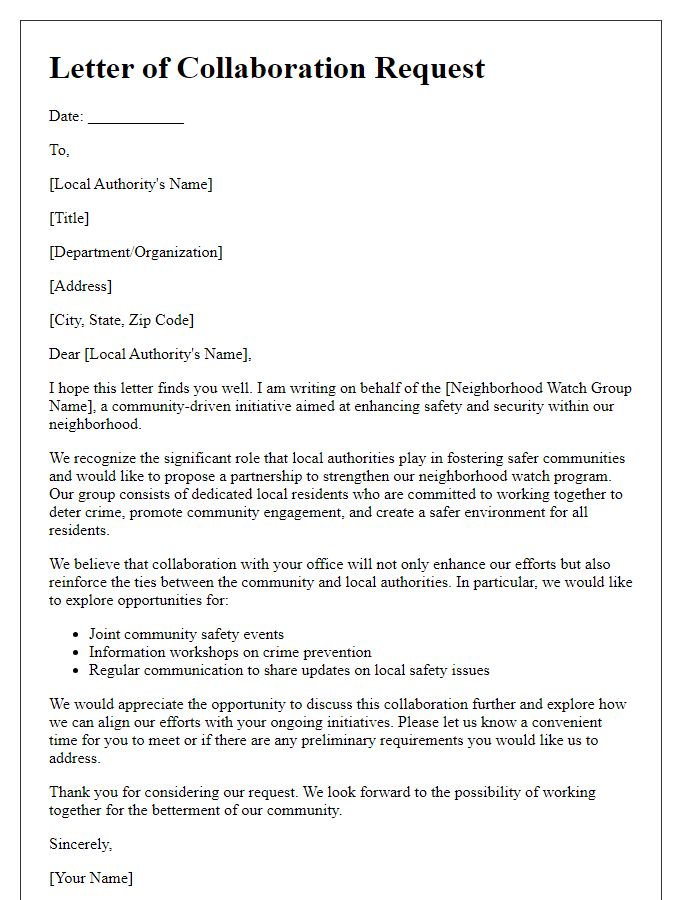
Letter template of informational update on neighborhood watch activities.
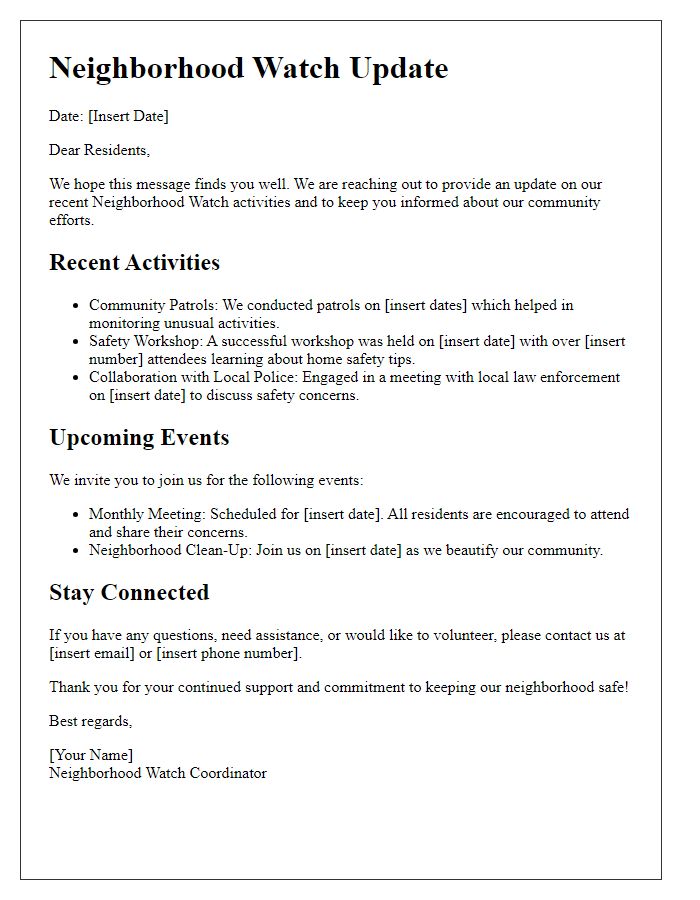
Letter template of participant guidelines for neighborhood watch volunteers.
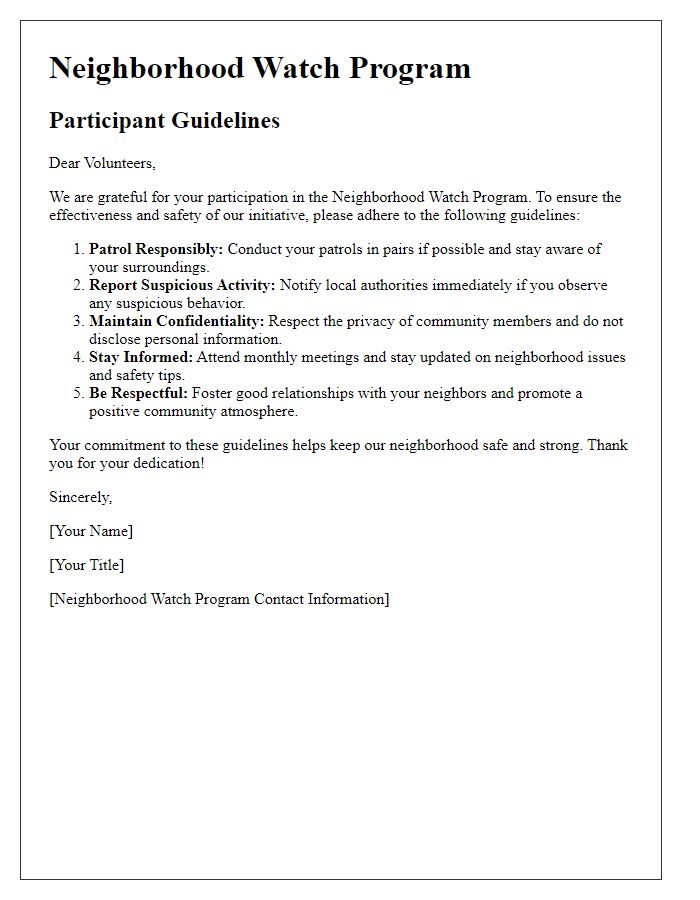

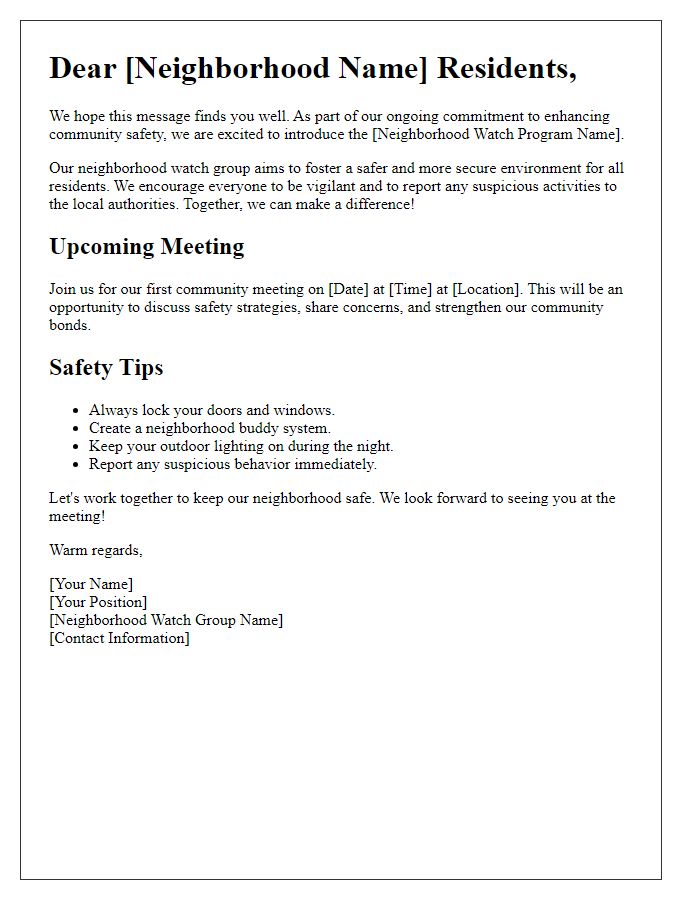
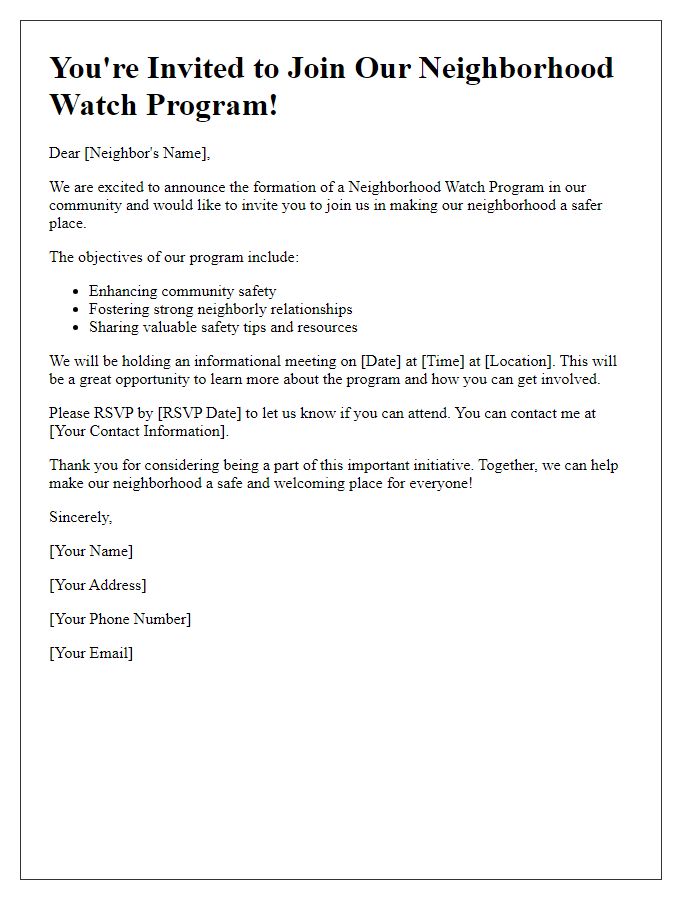
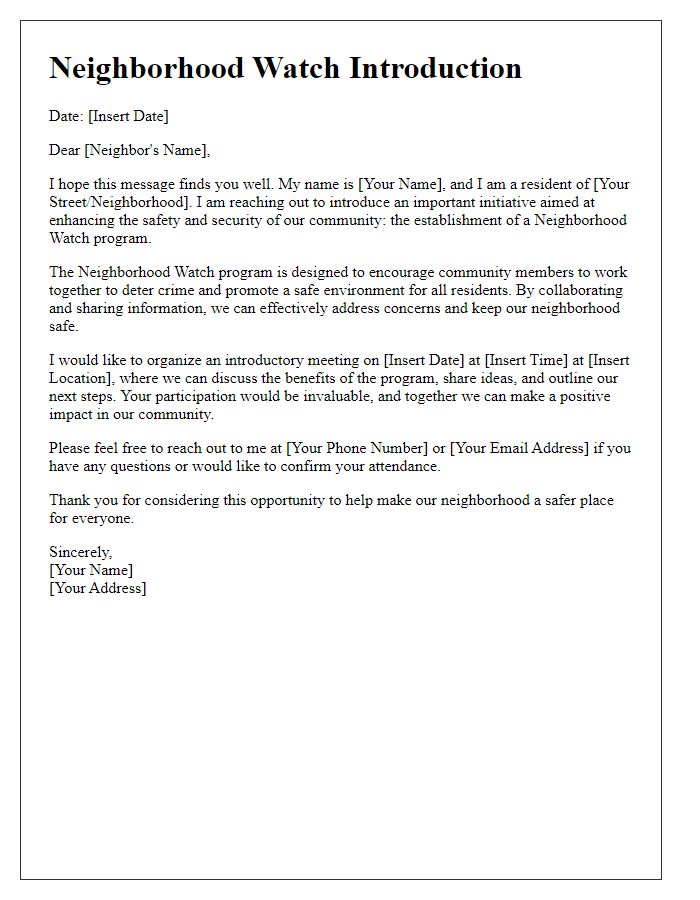
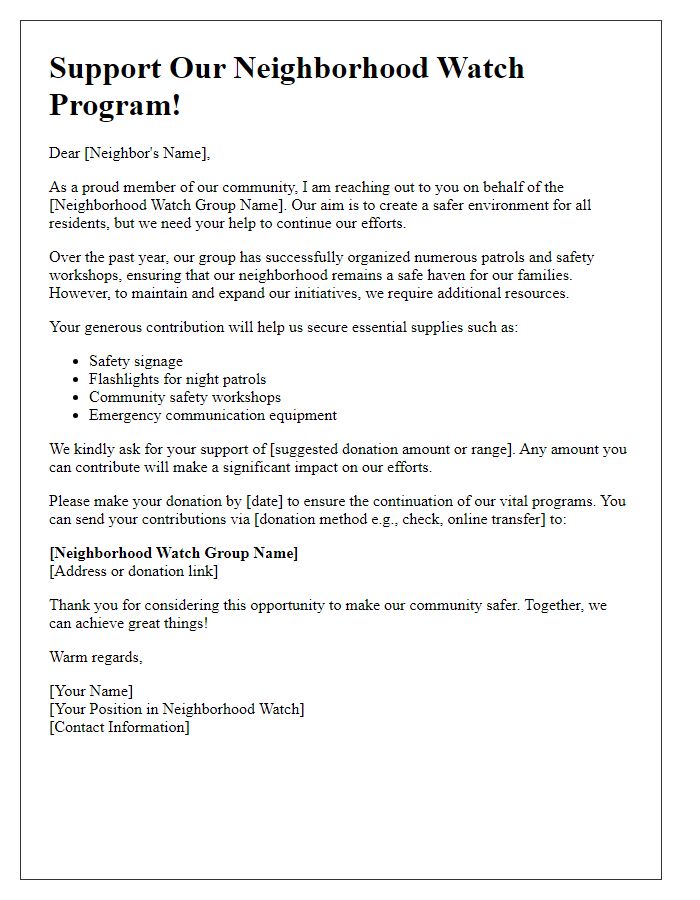
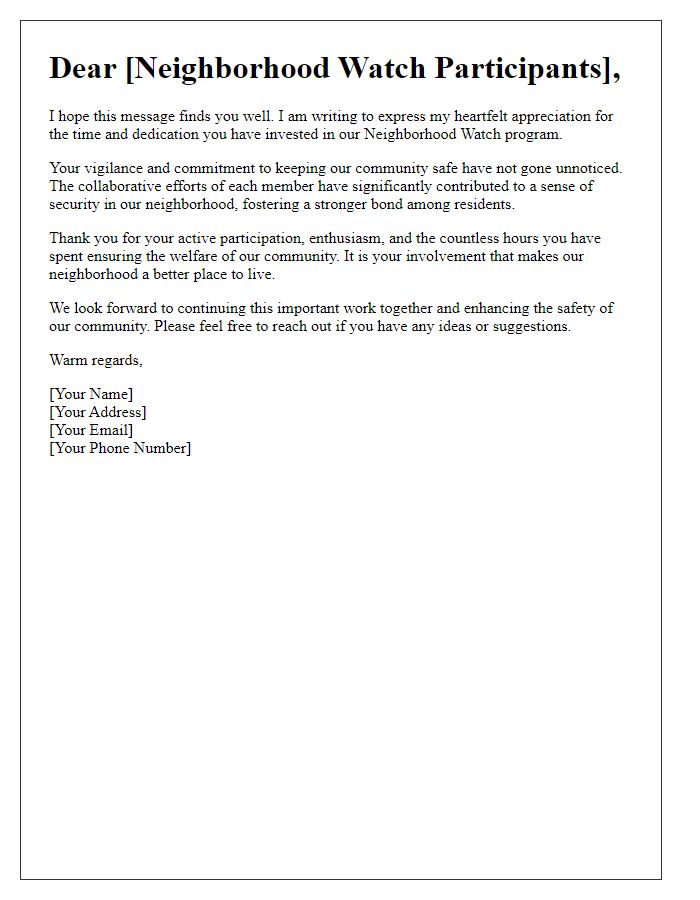
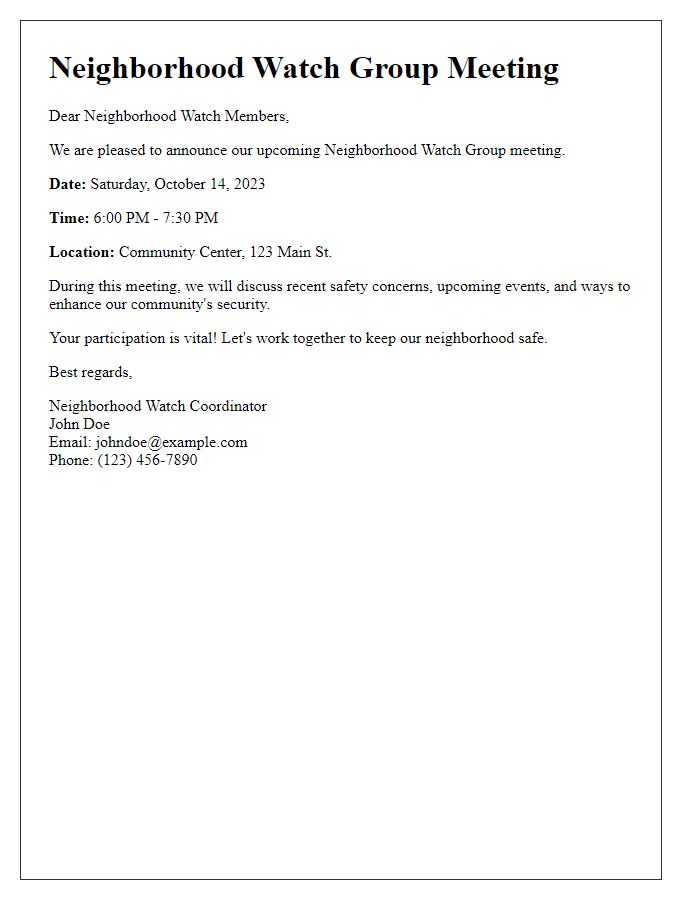



Comments